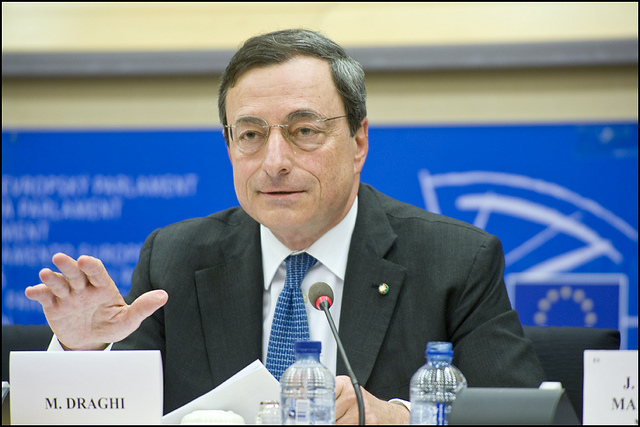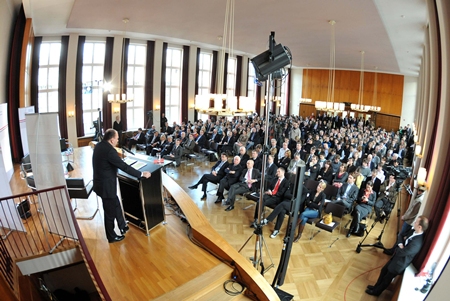Den europeiske sentralbankens sjef Jean-Claude Trichet ble i går tildelt Karlsprisen for 2011. I takketalen presenterte han flere ideer om hvordan framtidige økonomiske problemer i euroland kan håndteres (med andre ord, bedre enn dagens kaotiske strev med Hellas, Portugal og Irland). I en første fase kan de øvrige landene yte økonomisk støtte koblet til et reform- og spareprogram. Hvis dette ikke gir resultater, må eurosonens institusjoner kunne gripe inn og til og med kunne legge ned veto mot nasjonale økonomiske beslutninger. Slik ser Trichet for seg at denne inngripen i suvereniteten skal forsvares og fungere:
The rationale for this approach would be to find a balance between the independence of countries and the interdependence of their actions, especially in exceptional circumstances. We can see before our eyes that membership of the EU, and even more so of EMU, introduces a new understanding in the way sovereignty is exerted. Interdependence means that countries de facto do not have complete internal authority. They can experience crises caused entirely by the unsound economic policies of others. With a new concept of a second stage, we would change drastically the present governance based upon the dialectics of surveillance, recommendations and sanctions. In the present concept, all the decisions remain in the hands of the country concerned, even if the recommendations are not applied, and even if this attitude triggers major difficulties for other member countries. In the new concept, it would be not only possible, but in some cases compulsory, in a second stage for the European authorities – namely the Council on the basis of a proposal by the Commission, in liaison with the ECB – to take themselves decisions applicable in the economy concerned. One way this could be imagined is for European authorities to have the right to veto some national economic policy decisions. The remit could include in particular major fiscal spending items and elements essential for the country’s competitiveness.
I et mye lengre perspektiv bør EU få et eget finansdepartement, fortsetter Trichet i talen.
Not necessarily a ministry of finance that administers a large federal budget. But a ministry of finance that would exert direct responsibilities in at least three domains: first, the surveillance of both fiscal policies and competitiveness policies, as well as the direct responsibilities mentioned earlier as regards countries in a “second stage” inside the euro area; second, all the typical responsibilities of the executive branches as regards the union’s integrated financial sector, so as to accompany the full integration of financial services; and third, the representation of the union confederation in international financial institutions.
 Innlegg
Innlegg
